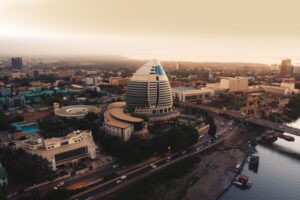Overview
Sudan’s financial sector is under the supervision of the Central Bank of Sudan (CBoS), which manages monetary policy and oversees financial institutions. Despite being home to several financial institutions, including conventional and Islamic banks, the sector remains underdeveloped. Years of economic sanctions, political upheaval, and recent conflicts have significantly impacted the country’s financial landscape, resulting in limited access to modern banking services.
The banking sector is dominated by traditional operations and a strong reliance on cash transactions. Mobile money services have seen growing adoption, and international organizations, such as the World Bank, have partnered with Sudan to enhance financial systems, but the infrastructure for a fully digital financial ecosystem remains limited.

Current Status of Open Banking
While open banking offers potential beyond inclusion and innovation, Sudan is still yet to realize or explore these benefits.
If adopted, these frameworks could facilitate the entry of fintech startups, streamline financial transactions, and enhance customer experiences through digital personalization.
Looking Ahead
The introduction of open banking in Sudan hinges on the establishment of regulatory frameworks and an improved infrastructure. The CBoS and international organizations could play pivotal roles in driving financial reform and encouraging digital transformation. Although progress remains limited, open banking has the potential to significantly impact financial inclusion and innovation in Sudan.
Important links
Open Banking Nigeria (Open Technology Foundation) is a non-profit backed by a group of industry experts across banking, fintech, risk management, and more to drive and launch the open banking standard in Nigeria.